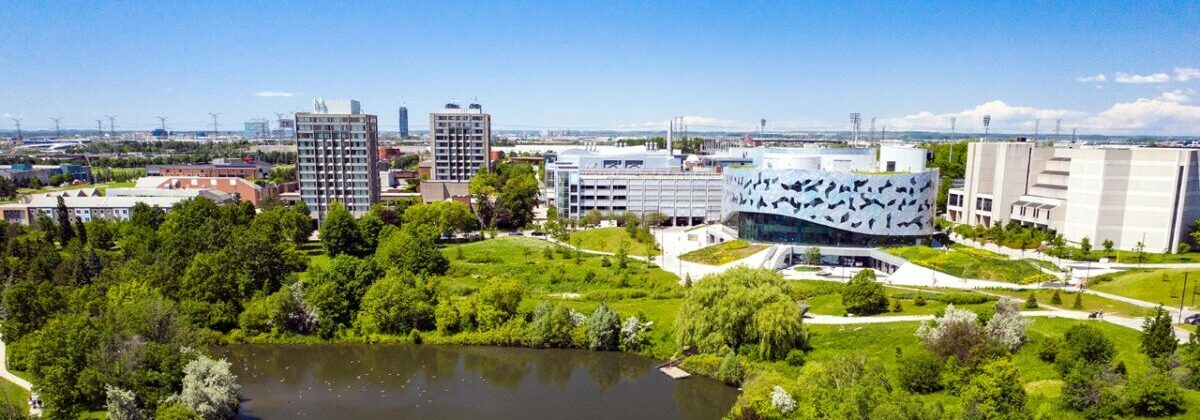
By Elaine Smith
A panel discussion organized as part of Congress 2023 aims to expand dialogue around settler-Indigenous relations, reckoning with the legacy of colonialism and re-imagining relationships between Indigenous and racialized settlers.
York University’s Centre for Feminist Research, Centre for Jewish Studies and Robarts Centre for Canadian Studies will jointly present Reckoning with and Re-Imagining Settler-Indigenous Relationships in Canada. Elaine Coburn, associate professor of international studies at Glendon College and director of the Centre for Feminist Research, will moderate this session happening on May 30 at York’s Keele Campus for Congress 2023.
“While discussions about Indigenous-settler relations generally focus on the relationships between white settlers and Indigenous Peoples, the reality is more nuanced,” says Coburn.
“We also need to think about racialized presence in Canada during settlement, what relations have been, and what they could be between racialized and Indigenous people. With the Black Lives Matter movement and the Truth and Reconciliation Commission report, there have been more opportunities to talk through the politics of solidarity.”
This panel will feature York researchers including Angele Alook, assistant professor in the School of Gender, Sexuality and Women’s Studies and a member of Bigstone Cree Nation in Treaty 8 territory; Professor Ena Dua, an anti-racist scholar in the School of Gender, Sexuality and Women’s Studies; Associate Professor of history David Koffman, J. Richard Schiff Chair for the Study of Canadian Jewry; and, from outside of York, Genevieve Fuji-Johnson, vice-president of the Canadian Political Science Association (Simon Fraser University).
“Canada has a history of inviting white settlement, excluding others or only including others in a precarious way,” Coburn said. “Racialized labour was welcomed, but temporarily.”
Scholarship has often repeated these exclusions, centering the white settler experience. A comprehensive understanding of Canada’s past and present takes into account the complexities of racialized peoples’ relationships with Indigenous Peoples.
In addressing these realities, the Congress 2023 panel aims to participate in understanding the “larger picture of decolonization and anti-racism. Thinking about the lands on which we live means thinking about supporting Indigenous self-determination and solidarities for racial justice so everyone can participate fully in life,” says Coburn.
Coburn, who is a member of the Congress 2023 Scholarly Planning Committee, says Convenor Andrea Davis “has a vision of what Congress can and will be – a space where Indigenous, Black and other racialized scholars feel invited in. We want to make sure these scholarly voices are brought from the margins to the centre.”
York University and the Federation for Humanities and Social Sciences will host Congress 2023 from May 27 to June 2. Register here to attend or volunteer in a variety of roles to support Congress. Term dates have been adjusted to align with timelines for this year’s event.
